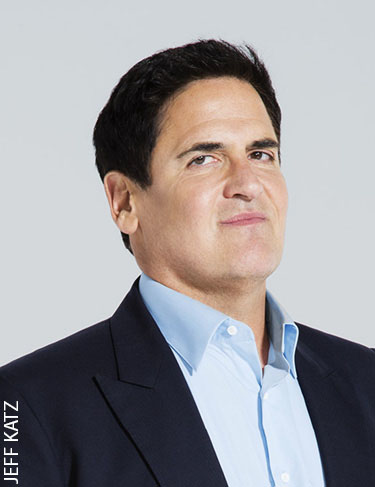 Shark Tank appearance: May 2, 2013
Shark Tank appearance: May 2, 2013
Investor: Mark Cuban
Deal: $75,000 for a 30 percent stake
Results: Sales increased from $26,000 to nearly $3 million.
In early 2014, MistoBox co-founders Samantha Meis and Connor Riley were often wide awake at 2 or 3 in the morning. No, those sleepless nights weren’t fueled by excessive amounts of the artisan coffee they sold through their subscription box service.
Their insomnia was caused by worry.
Meis and Riley had appeared on ABC’s Emmy-winning business reality show Shark Tank in May 2013, and their subscriptions nearly tripled to more than 1,900. But soon after that spike, they began losing customers at an alarming rate.
“Month after month, 18 percent of our subscribers were canceling,” Meis says. Mark Cuban, their Shark Tank investor and mentor, warned them that their business wasn’t sustainable with that turnover rate. “If this keeps up, you’re going to fail,” he told them.
It was a daunting challenge for the young entrepreneurs. Meis and Riley had come up with the idea of MistoBox in the fall of 2011 as a project for the undergraduate entrepreneurship program at the University of Arizona. A crowdfunding campaign on Kickstarter raised over $9,000 from 109 backers who believed in their business model: Every month MistoBox would ship subscribers four 3-ounce samples of beans from carefully chosen micro-roasters across the U.S.
When they began MistoBox, Meis and Riley figured their potential customers would be java aficionados and their competition would be specialty coffee roasters such as Blue Bottle or Intelligentsia.
The falling subscriber numbers led Meis and Riley to realize their products were poorly aligned with the marketplace. “Mark helped us see that we’d positioned ourselves as a novelty,” Meis says. “People might think, This is cool, but I still need to buy my coffee elsewhere. To survive, we needed to turn MistoBox into a replenishment service.”
Meis and Riley also determined they needed to make MistoBox more customized. “Everyone was getting the same four samples every month,” she says, “but people have drastically different coffee preferences. They might end up liking only one out of the four.” The $21.99 subscription fee was a steep price to pay for the small amount of coffee the customer actually drank.
Related: Why Customer Plans Top Business Plans
In October 2014, Meis and Riley rolled out a new website that offered a personalized experience. Customers answered questions about their coffee preferences—for instance, to specify their preferred price tier (basic, deluxe or exclusive) and to state whether their favorite roast was light, medium or dark. A coffee curator would then pick the beans the customer would receive from among 400 coffees prepared by 34 roasters. Customers would also choose the frequency of delivery. With weekly shipment at the basic tier, the price is $12.79 per 12-ounce bag of coffee, which is a cost that’s competitive with Starbucks and supermarkets, but giving MistoBox an edge because it’s more convenient than those options.
“Before, we had really focused on the coffee connoisseur,” Meis says. “Our biggest reluctance in moving to a broader market was that our reputation in the specialty coffee industry would suffer.” But the industry has fully embraced MistoBox’s goal of “making amazing coffee accessible to everyone,” from connoisseurs to those who still have old cans of Maxwell House in their pantries.
“I had just about written them off, thinking they would stay small. They pivoted. Did the work. The rest is history.”
Customers also liked the new model. Today MistoBox retains 94 percent of its subscribers, a reversal that impresses Cuban. “It was incredible,” he says of Meis and Riley’s ability to reinvent MistoBox. “I had just about written them off, thinking they would stay small. They pivoted. Did the work. The rest is history. Their business is amazing, and their product is even better.”
Meis and Riley have moved to San Francisco to be a part of the city’s robust startup culture. Their four full-time employees work remotely, “which really cuts down on overhead. But even more important, it makes everyone really happy,” Meis says. The team keeps in touch with the messaging app Slack and weekly meetings on Google Hangout.
“We’re growing month over month,” Meis says. “So now we get to work on how we can make the customer experience even better.” One pending idea: A Netflix-like queue where customers can select the next several coffees they want to try.
As for Meis’s caffeine habits, she’s loyal to her favorite: a single-origin Ethiopian bean from Verve, a roaster in Santa Cruz, California. And with only one cup of joe in the morning and one in the afternoon—plus accounting ledgers that show MistoBox is cash flow-positive—she now sleeps very well each night.
Related: How You Can Succeed as an Entrepreneur
This article originally appeared in the September 2016 issue of SUCCESS magazine.




